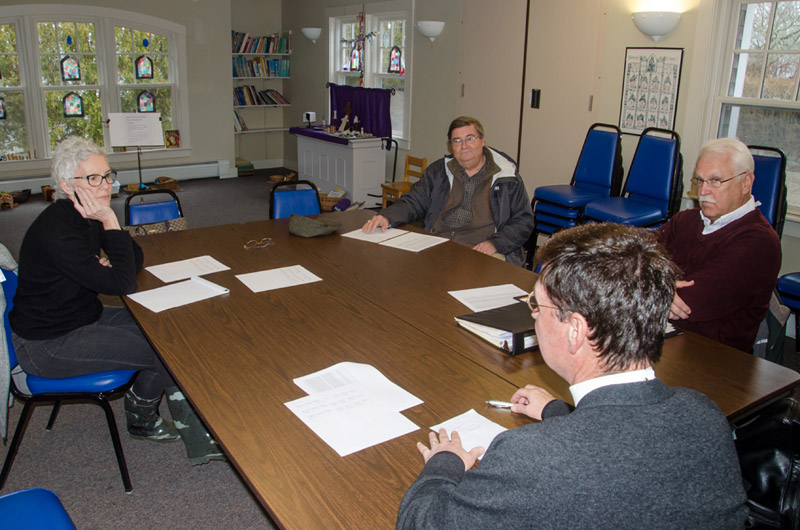Hospitality Homes, a system of homeless shelters hosted and organized by Island churches, is nearing the end of its first year, with administrators, coordinators and volunteers declaring success.
But the church leaders caution that the number of people who found a safe, warm place to sleep, and a hot meal this winter indicates that the need for services is real, and larger than they first imagined.
When the Federated Church in Edgartown, St. Andrew’s Episcopal Church, also in Edgartown, and the Grace Episcopal Church in Vineyard Haven opened their doors to anyone who needed shelter on January 1, no one came. Project leaders said they weren’t surprised, and predicted it would take time for people to trust the volunteers and organizers. Volunteers staffed the shelters every night, anyway. Ten days later, the program’s first guest showed up, and the churches have provided shelter to someone every night since. The program is slated to end on March 31.
Because of some heating and building issues, Grace Church had to pull out of the program, but the other two churches kept their temporary shelters open seven nights per week.

A total of 21 people have used the shelter service so far, and they stayed a combined 264 nights. Most were men, but eventually the shelters served women, too. On most nights now, five or six people arrive in need of a meal and a place to sleep.
“You see a lot of people you once knew in the community who had successful jobs, families,” said Edward (Peter) Vincent, who was one of four volunteer coordinators for the shelter program. “They’ve just hit rock bottom. The homeless problem is bigger than anyone realizes.”
Shelter coordinators say they know of other homeless people, including children, who did not use the shelters for a variety of reasons.
“Based on our conversations with guests, they are just the tip of the iceberg,” said Bill Vrooman, also a volunteer coordinator.
Some of the guests were dealing with substance abuse problems, but there were very few problems. According to program coordinators, police were called only once to deal with a guest who was violating the strict rules designed to insure safety and security. In most cases, they said, a gentle reminder or occasionally a stern word were enough to keep order so that all guests could be kept comfortable.
Some guests had jobs, but were new to the Island or suddenly found themselves without housing.
“It confirmed for me” said Dorie Godfrey, also a volunteer coordinator, “the working poor, how difficult it is to find housing on this Island,”
Nearly 200 volunteers kept the operation running smoothly. Each evening, two volunteers set up the shelter and served an evening meal. Two others arrived later to spend the night, prepare breakfast and store the equipment. The shelter coordinators worked with the winter community supper programs to provide some of the meals.
“People just have huge hearts,” Ms. Godfrey said. “Whenever we had a need, within minutes, someone replied to the email.”
Reverend Chip Seadale, of St. Andrews, was one of the church leaders who spearheaded the effort to organize church based shelters. He said he heard story after story about volunteers who felt their work was rewarding.
“On a scale of 1 to 10, a 12,” Rev. Seadale said. “I’m beginning to think the volunteers get more out of this than the guests.”







Comments (1)
Comments
Comment policy »